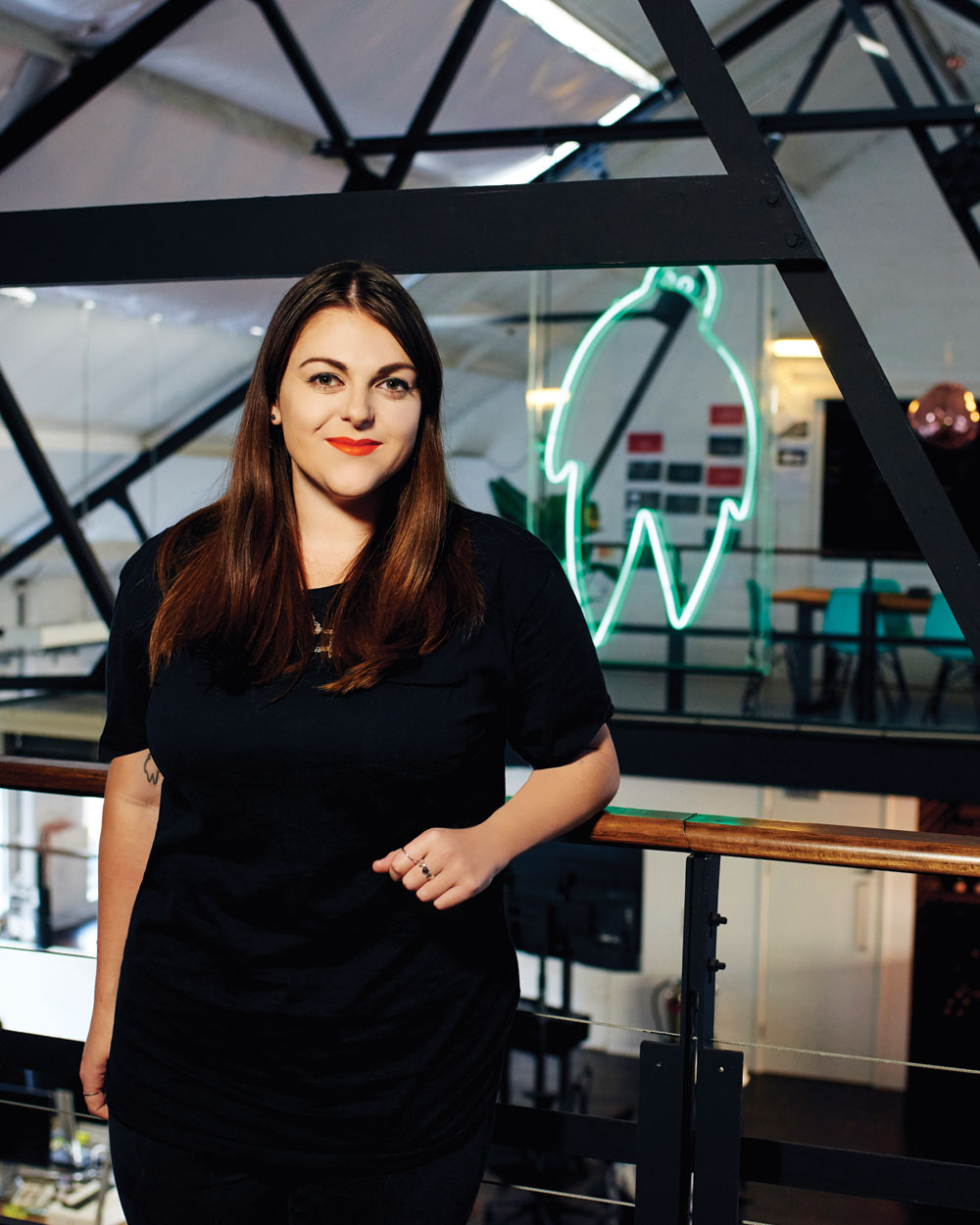
“The first algorithm created to be carried out by a machine was developed in 1843 by a woman named Ada Lovelace, now considered the first ever computer programmer. Seriously, if the Victorians can do it, so can we!”
@phntmldn | phantom.land
Meet Emily Shorvon, the 27-year-old co-founder of London-based digital creative agency Phantom. When Emily and three others launched the business in 2013, it was a five-person operation in a one-room office in Soho. Today, it boasts 40 staff, expansive premises in London’s epicentre of tech, Silicon Roundabout, and a core client-base that includes Sony Music, The Financial Times, Tate Modern, and the one that started it all – Google. “They were our first account,” says Emily of the global tech giant. “They believed in us as people – they didn’t care about us not having MBAs.”

On her current role
Maintaining the Google relationship is a key focus of Emily’s job – meaning she has a hands-on role in delivering digital solutions to their marketing challenges. The rest of her time (that is, when she’s not snapping selfies with Mindy Kaling at a Cannes Lions after-party or attending panel discussions at South by Southwest), is spent strategising Phantom’s next moves. After only three years in business, the company is in the catch-22 position of having to turn down massive clients every day. “We could easily be twice the size and do twice the amount of work that we do now,” Emily says. “But we are very selective about what we take on.”
Despite this, there is a major expansion in the works. In early 2017, Phantom opened an office in Auckland, where Emily lived and worked as a project manager after she graduated from AUT with a Bachelor of Communications degree. “The talent within the New Zealand digital industry is unbelievable,” says Emily. “But for all their skill and ambition there’s nowhere for these people to go. We want to give them the opportunity to be part of something ground-breaking.”
“I’ve never considered that being female should impact my success.”
On her background
For a young woman in a male-dominated industry, Emily is remarkably self-assured. She puts this down to her New Zealand upbringing. “New Zealand has always been ahead of the game in terms of representing women equally. It’s quite a matriarchal society in that being a strong woman has never really been seen as an unattractive thing – good old Helen Clark. I’ve never considered that being female should impact my success.”
Nevertheless, she remembers, when she was in her final year of high school, she was told not to pursue a degree in digital media. “Teaching, nursing and law were the only career paths my peers and I were encouraged to go down. Essentially the only computer-based subject we had was this archaic class where you learnt to type for your future job as a receptionist. It was very much like, books were for girls, computers were for boys.”
On female empowerment
Emily now sees it as her job to dispel this myth. “We need to rebrand digital. Take coding – people think of it as this weird, matrix-type thing but it’s the most creative discipline in the world.” It’s a shame, she says, that something must be labelled creative in order for a female to think she can do it, but in this case, it’s the truth.
“Maths comes into it but it’s more about problem-solving and coming up with the best way to bring an idea to life. If you want to start generalising, that’s not a male skill at all,” she laughs. “That’s a f*cking female skill.”





